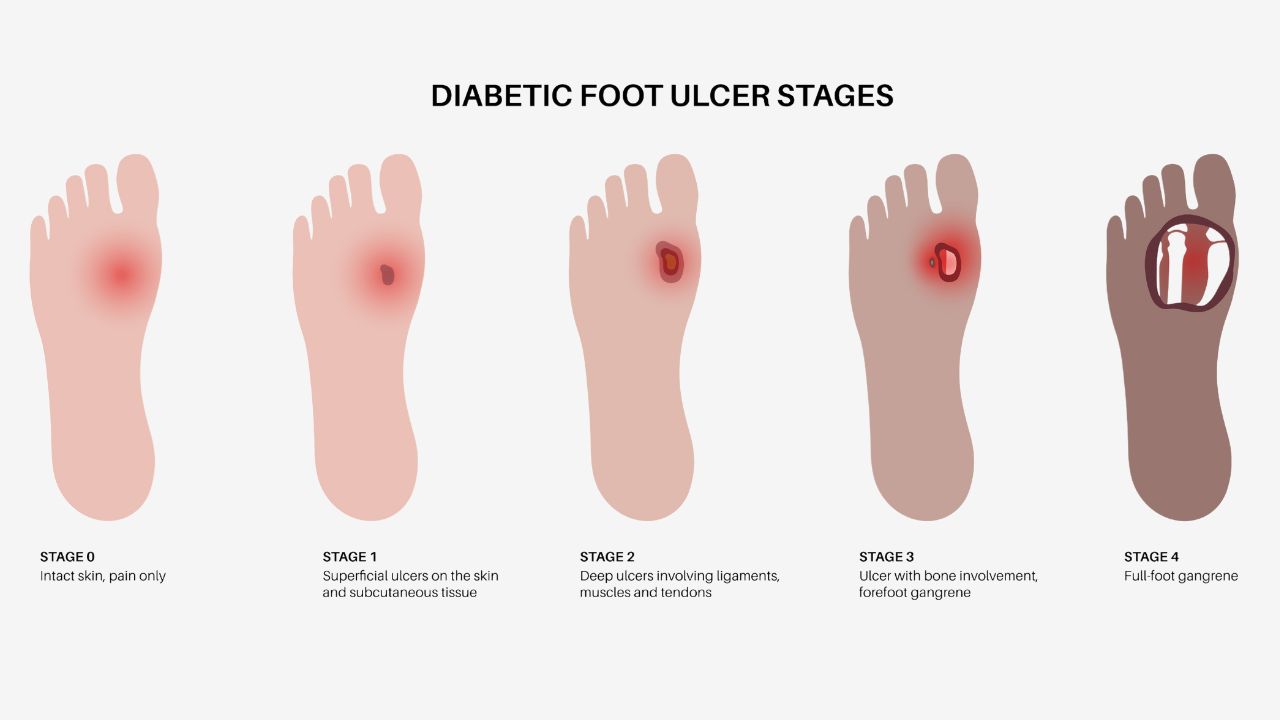
Diabetic Foot Ulcer Doctor’s Clinic GA – Prevention & Care
Diabetics frequently suffer from diabetic foot ulcers as a complication of diabetes mellitus, typically at the bottom of their feet. Diabetes may lead to peripheral neuropathy and vascular disease complications which further contribute to diabetic foot ulcers. Diabetes can damage nerves in the feet. Peripheral neuropathy limits sensation in feet, making it harder for individuals to detect injuries, pressure or irritation in their feet, making it hard for them to detect injuries such as cuts and blisters that require medical treatment. Diabetic foot ulcers are a common and serious complication of diabetes, affecting approximately 15% of diabetic patients at some point in their lives. These ulcers, if not properly treated, can lead to severe infections and, in worst cases, amputation. Given their complexity, we encourage you to contact our staff at No Bad Bugs to discuss your condition and treatment. No Bad Bugs Diabetic Foot Ulcer Doctor’s Clinic is located at LaGrange, GA and offers in person as well as remote services.
Diabetes may also have an adverse impact on blood vessels, leading to poor circulation in the extremities and hindering wound healing processes. With inadequate blood flow comes an accelerated healing time frame – creating further challenges for healing wounds correctly. Charcot foot, where bones in the foot weaken and fracture, may occur in those living with diabetes, leading to structural changes that increase ulcer risks in their feet. This condition could become even worse with age resulting in additional ulcers developing over time. Due to impaired immune functions in individuals with diabetes, wounds are more prone to infections that may spread through surrounding tissues or bones into the bloodstream. These infections may even prove life threatening – potentially becoming systemic infections with devastating repercussions for tissues and bones as well as individuals.
Prevention and management of diabetic foot ulcers require regular foot care, monitoring for injuries or infection, wearing the correct footwear, and managing blood sugar effectively. Should an ulcer form, prompt medical intervention must be sought quickly in order to avoid serious complications including infections that could require an amputation in severe cases. Regular foot exams, proper foot hygiene practices, and lifestyle measures are essential components of managing diabetes in order to reduce the risk of diabetic foot ulcers.
Early detection and ongoing care for diabetic foot ulcers are crucial for several reasons. Our Diabetic Foot Ulcer Doctor’s Clinic in GA is focused on diagnosing, treating and managing diabetic foot ulcers in individuals. Equipped with a multidisciplinary team of wound care specialists and nurses experienced in diabetic foot care, its services cover thorough diagnostic assessments, advanced therapies and ongoing follow-up care to meet each diabetic patient’s individual needs.
